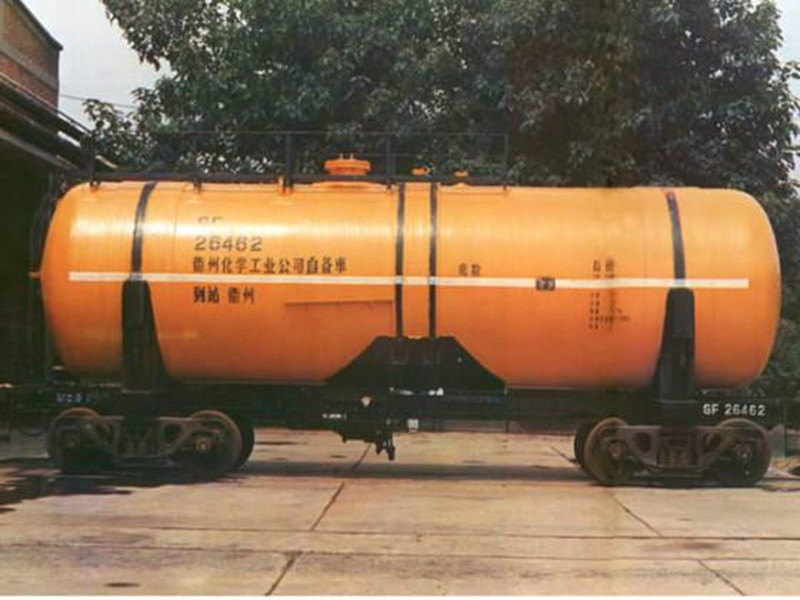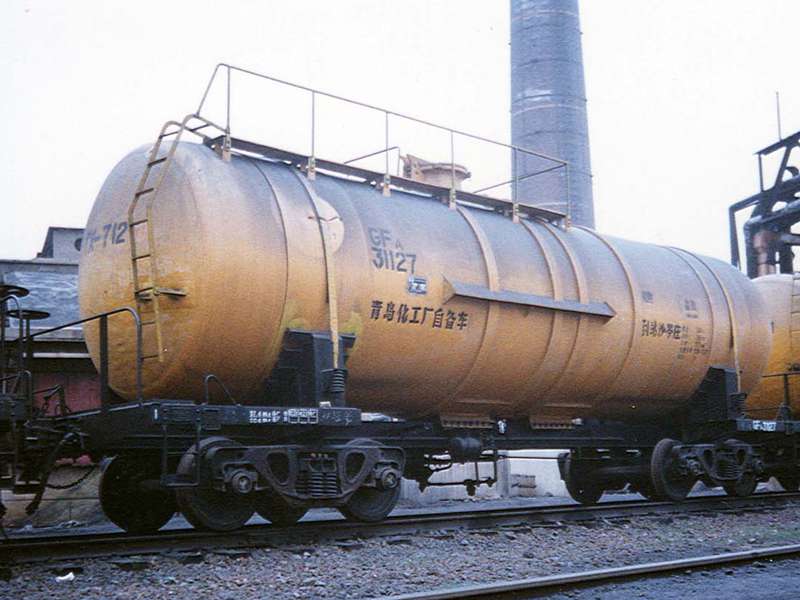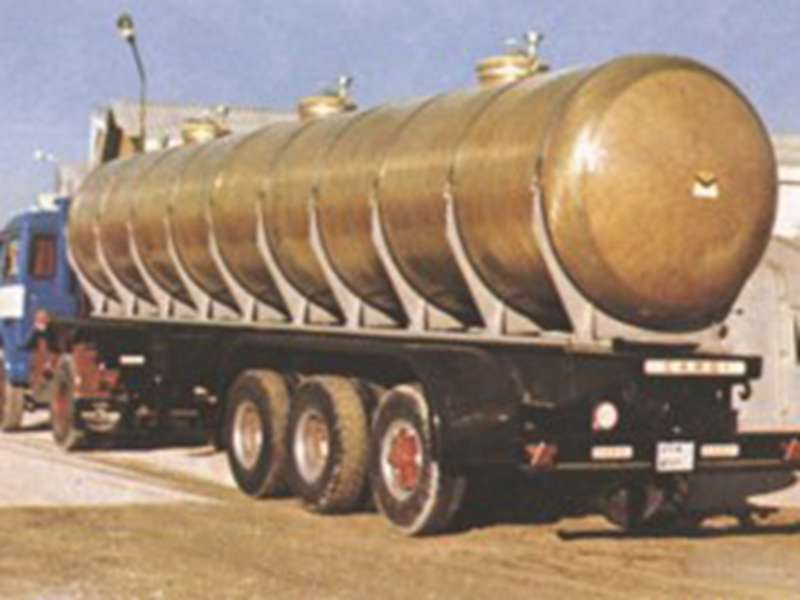Transport Tanks | DOT-Approved, Leak-Proof, Custom Built
Transport Tanks is a key solution in the manufacturing industry, specifically within Special Equipment Manufacturing Industry and Manufacturing of specialized containers and metal packaging containers. This article explores how No. 1289, Yingbin South Street, Jizhou District, Hengshui, Hebei, China supports professionals with durable, high-performance products, and explains why this product is an ideal choice for businesses in these sectors.



Table of Contents
- Transport Tanks Overview
- Benefits & Use Cases of Transport Tanks in Manufacturing of specialized containers and metal packaging containers
- Cost, Maintenance & User Experience
- Sustainability & Market Trends in manufacturing
- Conclusion on Transport Tanks from No. 1289, Yingbin South Street, Jizhou District, Hengshui, Hebei, China
Transport Tanks Overview
Transport tanks are engineered vessels designed to safely carry liquids, slurries, and gases across road, rail, and on-site routes. In the Special Equipment Manufacturing Industry—particularly in the Manufacturing of specialized containers and metal packaging containers—these tanks are mission-critical for chemical logistics, water treatment, food and pharmaceutical intermediates, and corrosive media. Modern solutions increasingly leverage FRP (fiberglass reinforced plastic) for corrosion resistance and weight reduction, as well as stainless steel for sanitary or pressure-rated needs. Typical specifications include volumes from 1–60 m³, custom baffles for slosh control, multi-layer linings for chemical compatibility, manways, venting/relief assemblies, level indicators, and options for insulation or heat tracing. Designs can be engineered to comply with relevant codes and transport regulations as required by the application and region.
Based in a dedicated manufacturing hub at No. 1289, Yingbin South Street, Jizhou District, Hengshui, Hebei, China, the team supports B2B decision makers with configurable tank geometries (horizontal/vertical, cylindrical/elliptical), tailored resin systems, and high-strength filament winding or dual-laminate construction. Case projects frequently involve aggressive acids/alkalis and saline brines where FRP transport tanks deliver multi-year corrosion performance with lower tare weight, enabling higher payloads and improved logistics efficiency. The result is a robust, fit-for-purpose solution that meets operational, safety, and compliance goals.
Benefits & Use Cases of Transport Tanks in Manufacturing of specialized containers and metal packaging containers
In specialized container manufacturing, transport tanks serve diverse workflows: bulk chemical supply to production lines, intermediate storage between processing steps, off-spec recovery, and finished goods distribution. FRP tanks are particularly effective for acids (HCl, H₂SO₄), alkalis (NaOH), chlor-alkali brines, fertilizers, and wastewater streams due to their excellent chemical resistance and favorable strength-to-weight ratio. Stainless steel configurations remain preferred for food-grade syrups, solvents, or applications requiring elevated temperatures and sanitary finishes. For metal packaging and container plants, mobile tanks streamline in-plant transfer of coatings or cleaning agents, reduce drum handling, and enhance EHS outcomes by containing spills and fugitive emissions.
- Competitive advantages: corrosion-resistant FRP, lighter tare weight for higher payloads, engineered baffles for stability, and optional smart sensors for level/temperature/pressure.
- Integration readiness: customizable nozzles, flanges, CIP ports, grounding lugs, and forklift or chassis mounts to fit existing fleets and plant layouts.
- Expertise: The manufacturing base at No. 1289, Yingbin South Street, Jizhou District, Hengshui, Hebei, China provides application engineering support—from media compatibility to lifecycle planning—so B2B teams can deploy safely and at scale.
Cost, Maintenance & User Experience
Total cost of ownership for transport tanks hinges on initial capex, payload efficiency, downtime, and service life. FRP tanks often deliver lower lifecycle cost in corrosive duty because they resist pitting and underfilm corrosion, reducing unplanned repairs and coatings maintenance. The lighter weight of FRP compared with carbon steel can enable higher payloads or lower fuel consumption, improving cost per delivered ton. For sanitary or high-temperature processes, stainless steel’s durability and ease of cleaning protect product quality and minimize batch losses—another ROI driver for B2B operations.
Maintenance practices typically include visual inspections for abrasion and fittings integrity, periodic hydro/leak testing, gasket replacement, and liner checks (if applicable). Customers in the Special Equipment Manufacturing Industry value quick clean-out, standardized spare parts, and clear documentation for audits. Feedback commonly highlights faster changeovers due to CIP-ready ports, improved operator safety from integrated venting/overflow safeguards, and the benefit of engineered baffles that reduce surge during braking or forklift movement. With proper care and application-appropriate materials, transport tanks deliver multi-year service with predictable costs, strengthening budget planning and uptime targets for plant managers and logistics leaders.
Sustainability & Market Trends in manufacturing
Sustainability priorities are reshaping how transport tanks are specified and operated. Lighter tanks reduce fuel consumption and CO₂ per trip, while corrosion-resistant designs extend service life—both lowering the embodied carbon of replacements. Many buyers look for materials and resins aligned with stricter EHS standards and responsible end-of-life strategies, such as component reuse and material recovery where feasible. Digitalization is another major trend: integrating level, temperature, and pressure monitoring enables predictive maintenance, minimizes product loss, and supports traceability. As regulatory frameworks tighten around hazardous materials handling and spill prevention, engineering controls like secondary containment features, anti-static pathways, and compliant vent/relief systems are increasingly standard.
Positioned at No. 1289, Yingbin South Street, Jizhou District, Hengshui, Hebei, China, the manufacturing team brings a forward-thinking, eco-conscious approach to tank design—balancing performance, safety, and lifecycle impacts. By offering application-specific material selections (FRP, dual laminate, stainless), smart instrumentation options, and maintainability-by-design, they help B2B decision makers meet ESG goals without compromising throughput. The result is a greener, more efficient logistics chain that aligns with market demand for safer, cleaner, and more transparent operations.
Conclusion on Transport Tanks from No. 1289, Yingbin South Street, Jizhou District, Hengshui, Hebei, China
In the Special Equipment Manufacturing Industry and Manufacturing of specialized containers and metal packaging containers, transport tanks underpin safety, efficiency, and compliance. With configurable FRP and metal options, engineered baffles, and smart add-ons, they deliver dependable performance and strong lifecycle value. The manufacturing base at No. 1289, Yingbin South Street, Jizhou District, Hengshui, Hebei, China stands out for application engineering and reliable build quality that supports B2B growth. Contact us: email: sales@jrain-frp.com. Visit our website: https://www.jrain-frp.com
Latest news
-
Rectangular Tank Made of Fiberglass Material – Durable, Cost-Effective Liquid Storage SolutionsNewsNov.24,2025
-
Hollow Drill Rods for Efficient Drilling Operations in the Field | Durable, Lightweight & CustomNewsNov.23,2025
-
Powerful yt27 Rock Drill for Tough Mining Surfaces | Durable & PortableNewsNov.23,2025
-
Why the Reversible Drill Bit Is a Versatile Tool for All Your Drilling NeedsNewsNov.22,2025
-
Fiberglass Food Grade Equipment: Key Features, Benefits & Global ImpactNewsNov.22,2025
-
How a Drilling Rod Spirals Down Into the Earth: Tech, Trends & Global ImpactNewsNov.21,2025











